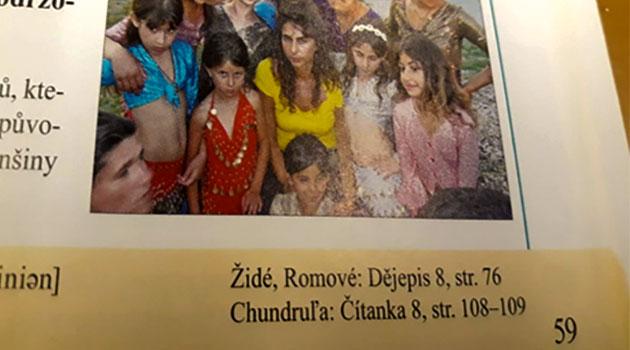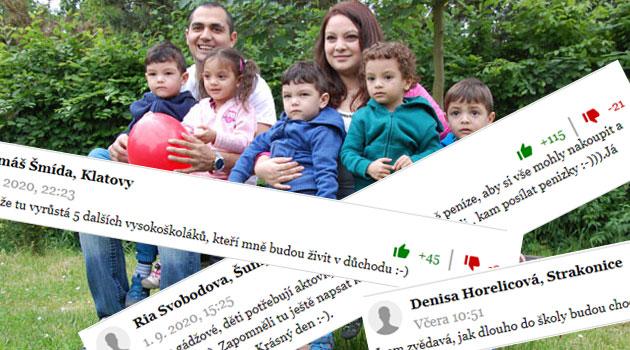Czech primary school materials feature a total of 71 sentences about Roma - and they promote stereotypes

The textbooks used in Czech primary schools lack complete, objective information about Romani people. Most of the information included in the materials used in the schools also supports stereotypes.
Those are the findings of research that was undertaken by the Council of Europe, the Georg Eckert Institute, and the Roma Education Fund in 20 European countries. The aim of the research was to analyze the representation of Romani people in school curricula and in the textbooks used for primary and secondary education, and not just in the Czech Republic.
Textbooks for fifth through ninth grade and some for high school students were researched. In a total of 38 textbooks reviewed from the Czech Republic, just 11 mention Romani-related subject matter.
“There are several passages about Romani people in just 11 books. All of the texts we discovered amount to 1080 words in 71 sentences,” Tomáš Ščuka, who implemented the research in the Czech Republic, told news server Romea.cz.
“The word ‘Rom‘ is mentioned just 52 times. Most of the passages, specifically, seven of the pieces, are from history textbooks and are presented in association with the subject of the Second World War, in the context of the Holocaust of the Jewish people, where there are also brief comments on the genocide of the Roma,” Ščuka reported.
In civic education textbooks, Romani people are mentioned in subject matter associated with discrimination, national minorities, and the rights of minorities, while geography textbooks present Romani people just as numbers in the population. Ščuka pointed out that a great deal of the information presented about Romani people is stereotypical.
He gave the example of the following description of Romani people from such a textbook: “Romani people hold different values than those held by the majority population of the Czech Republic. Family is very important to them. Customarily, they live as a large family together in the same house or in the same neighborhood. The biggest punishment for Roma has always been to be excluded from their families. Since the close of the 20th century, attempts have been increasing to improve the inclusion of Romani people into society. There are Romani cultural and educational associations, congresses are organized of Roma around the world, etc. It is said that Romani people have rhythm in their bodies and most of them sing beautifully. Music has been and to this day still is a source of livelihood for them.”
Based on the findings of the research, Ščuka believes it is necessary to revise Czech curricula and textbooks in this area, explaining that: “The authors speak about Romani people as a homogenous group. Biologically-based prejudices are used, because the Roma, according to such a text, are assumed to be biologically gifted with respect to dance, music, etc.”
The researchers recommend that authors of textbooks and publishing houses involve Romani authors and Romani organizations in the authorial groups producing primary and secondary school materials and believe it is important to eliminate misleading information about Romani people from these textbooks, that the use of stereotypes be abated, that the contributions made by Romani people to society be recognized, and that the prejudices in these texts be corrected. It is also necessary to develop clear aims with respect to teaching critical thinking skills about the phenomena of discrimination and racism in order to prevent the creation of an opportunity for discrimination and stereotypes to be built up and strengthened by the process of education.
